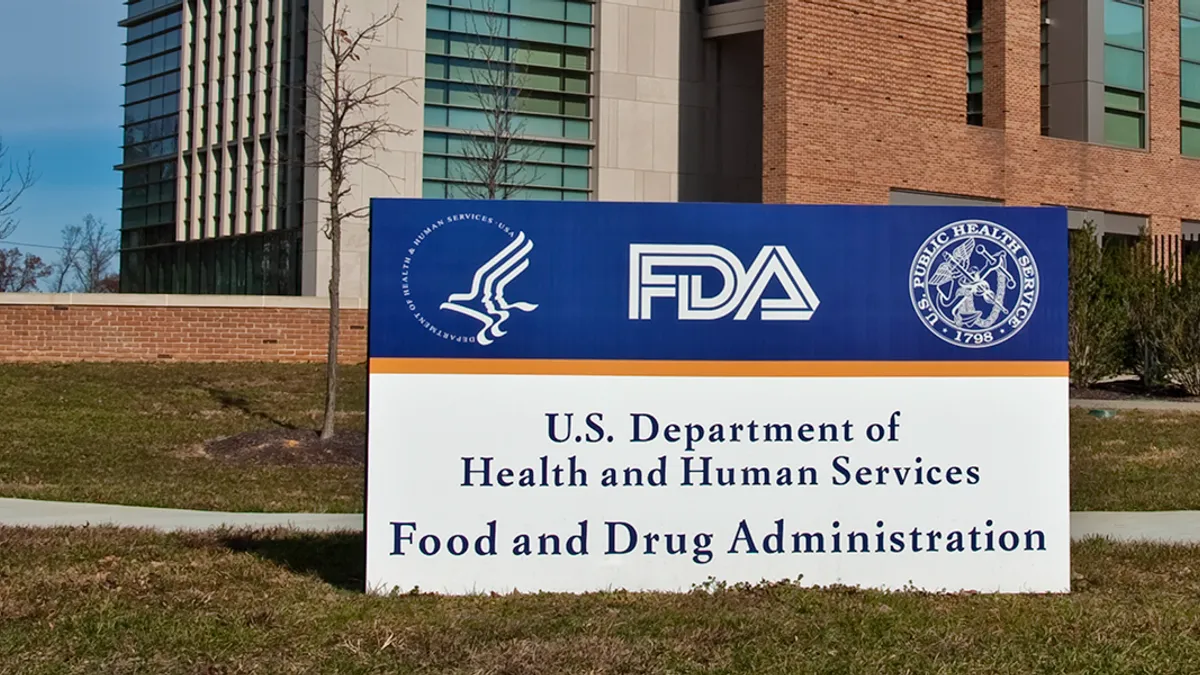Dive Brief:
- FDA hosted a virtual listening session Monday for groups representing device manufacturers, commercial technology companies, patients and others regarding the agency's new Digital Health Center of Excellence.
- Years in the making, the center was formally established Sept. 22 by the the Center for Devices and Radiological Health as a hub for approaching regulation of technologies including elements of AI/machine learning, software as a medical device, and wearables. CDRH's Bakul Patel, who now leads the center, said the vision is to foster "responsible and high-quality" innovation and tailor the medical device regulatory paradigm for digital health, while maintaining FDA standards.
- Zach Rothstein, AdvaMed vice president of technology and regulatory affairs, told Patel during the panel session the medical device industry sees the center as a potential resource for adding "clarity" and "regulatory convergence" in the sector.
Dive Insight:
Patel, who has led the agency's digital health regulatory and scientific efforts for the past decade, contends that among the center's fundamental objectives is to provide a consistent application of FDA's policy and oversight approaches to these emerging technologies.
"Digital health is being embedded into lots of medical products that FDA regulates" and the center will become a "one-stop" resource as the agency moves forward in trying to coordinate its regulatory approaches, according to Patel.
The plan for the new center is to provide scientific expertise across FDA and avoid duplication of work. The initial focus will include advance manufacturing, digital biomarkers, virtual reality, as well as software as a medical device (SaMD) and software in a medical device (SiMD).
Ultimately, Patel said FDA wants to provide the "least burdensome" oversight based on "efficient, transparent, and predictable product review" with consistent evaluation quality. "We want to continue to provide the clarity on regulation," he emphasized, with strong strategic partnerships with industry "to make sure that this field collectively gets to the next level."
AdvaMed's Rothstein said regulatory clarity will be essential for medical device companies under FDA's jurisdiction that are developing digital health technologies.
Bradley Merrill Thompson, attorney at Washington, D.C. law firm Epstein Becker Green, said he was disappointed that the FDA did not commit to anything concrete.
"I generally like the fact that FDA seems interested in outside opinion, but of course the proof is not found in a listening session but in action."
Evidence will be key in securing "trust and confidence" in digital health technologies, Patel said. Patel also explained the agency will be creating a virtual Digital Health Advisory Group that will "interact and align" goals of the center with external partnerships. A CDRH Digital Health Steering Committee will provide input on the policy and regulatory science agendas.
Over the next few months, FDA activities will include starting to develop resources for external stakeholders and partnerships and stand up the agency's advisory groups. CDRH on Nov. 12 will host a second virtual listening session regarding the center.
As for prioritizing clarity on digital health issues in guidance in the coming year, those topics appear to be taking a bit of a backseat to other issues FDA has to work on. Thompson, who serves as general counsel for the AI Startups in Health Coalition, expressed disappointment that CDRH's recently released annual list of guidance documents assigned a lower Category B priority for the Pre-Determined Change Control Plan: Premarket Submission Considerations for AI and Machine Learning Software document.
"The change control plan has to be the cornerstone of FDA's new approach to AI, and so for the center to say that that is only a priority B is flatly inconsistent with the messages they seem to be expressing in the listening session," Thompson added.











